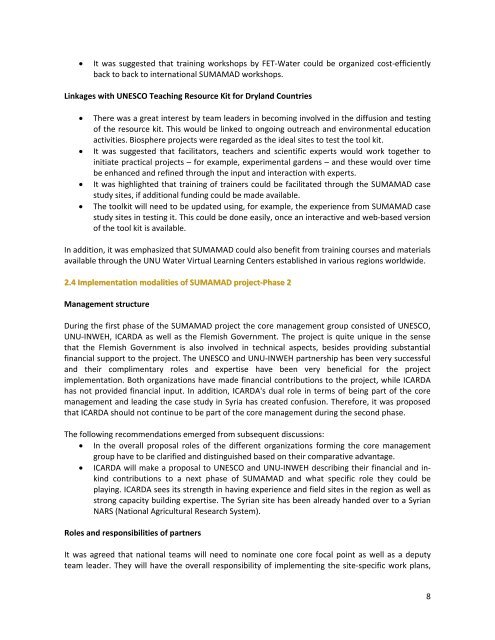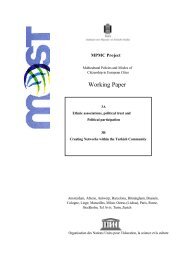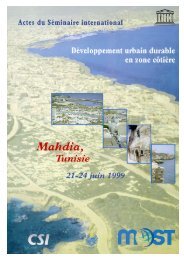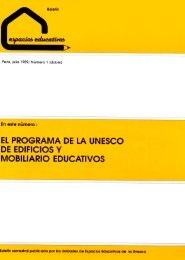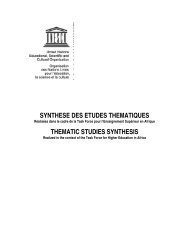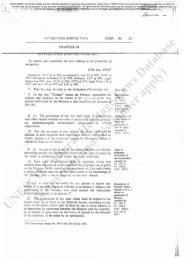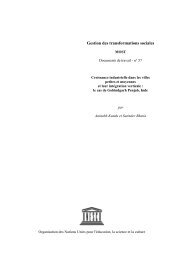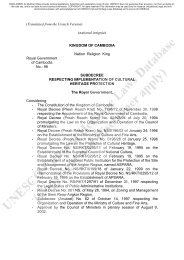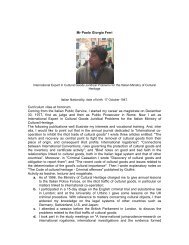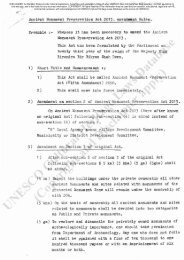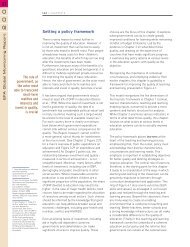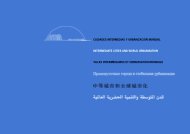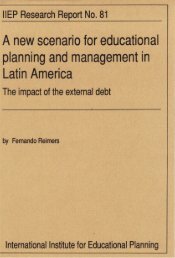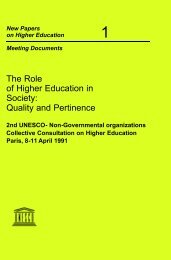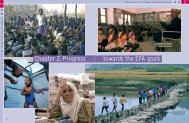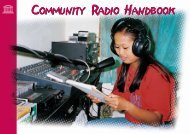Planning Workshop –Sustainable Management of Marginal - Unesco
Planning Workshop –Sustainable Management of Marginal - Unesco
Planning Workshop –Sustainable Management of Marginal - Unesco
Create successful ePaper yourself
Turn your PDF publications into a flip-book with our unique Google optimized e-Paper software.
• It was suggested that training workshops by FET‐Water could be organized cost‐efficiently<br />
back to back to international SUMAMAD workshops.<br />
Linkages with UNESCO Teaching Resource Kit for Dryland Countries<br />
• There was a great interest by team leaders in becoming involved in the diffusion and testing<br />
<strong>of</strong> the resource kit. This would be linked to ongoing outreach and environmental education<br />
activities. Biosphere projects were regarded as the ideal sites to test the tool kit.<br />
• It was suggested that facilitators, teachers and scientific experts would work together to<br />
initiate practical projects – for example, experimental gardens – and these would over time<br />
be enhanced and refined through the input and interaction with experts.<br />
• It was highlighted that training <strong>of</strong> trainers could be facilitated through the SUMAMAD case<br />
study sites, if additional funding could be made available.<br />
• The toolkit will need to be updated using, for example, the experience from SUMAMAD case<br />
study sites in testing it. This could be done easily, once an interactive and web‐based version<br />
<strong>of</strong> the tool kit is available.<br />
In addition, it was emphasized that SUMAMAD could also benefit from training courses and materials<br />
available through the UNU Water Virtual Learning Centers established in various regions worldwide.<br />
2.4 Implementation modalities <strong>of</strong> SUMAMAD project‐Phase 2<br />
<strong>Management</strong> structure<br />
During the first phase <strong>of</strong> the SUMAMAD project the core management group consisted <strong>of</strong> UNESCO,<br />
UNU‐INWEH, ICARDA as well as the Flemish Government. The project is quite unique in the sense<br />
that the Flemish Government is also involved in technical aspects, besides providing substantial<br />
financial support to the project. The UNESCO and UNU‐INWEH partnership has been very successful<br />
and their complimentary roles and expertise have been very beneficial for the project<br />
implementation. Both organizations have made financial contributions to the project, while ICARDA<br />
has not provided financial input. In addition, ICARDA's dual role in terms <strong>of</strong> being part <strong>of</strong> the core<br />
management and leading the case study in Syria has created confusion. Therefore, it was proposed<br />
that ICARDA should not continue to be part <strong>of</strong> the core management during the second phase.<br />
The following recommendations emerged from subsequent discussions:<br />
• In the overall proposal roles <strong>of</strong> the different organizations forming the core management<br />
group have to be clarified and distinguished based on their comparative advantage.<br />
• ICARDA will make a proposal to UNESCO and UNU‐INWEH describing their financial and in‐<br />
kind contributions to a next phase <strong>of</strong> SUMAMAD and what specific role they could be<br />
playing. ICARDA sees its strength in having experience and field sites in the region as well as<br />
strong capacity building expertise. The Syrian site has been already handed over to a Syrian<br />
NARS (National Agricultural Research System).<br />
Roles and responsibilities <strong>of</strong> partners<br />
It was agreed that national teams will need to nominate one core focal point as well as a deputy<br />
team leader. They will have the overall responsibility <strong>of</strong> implementing the site‐specific work plans,<br />
8


